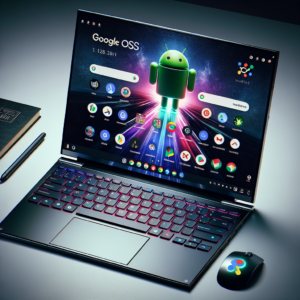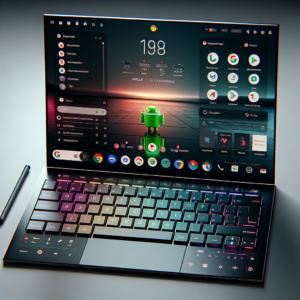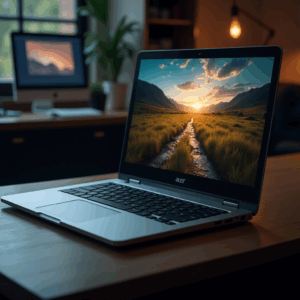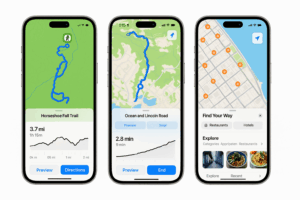Exclusive: Google Pixel Laptop in Development – What We Know So Far
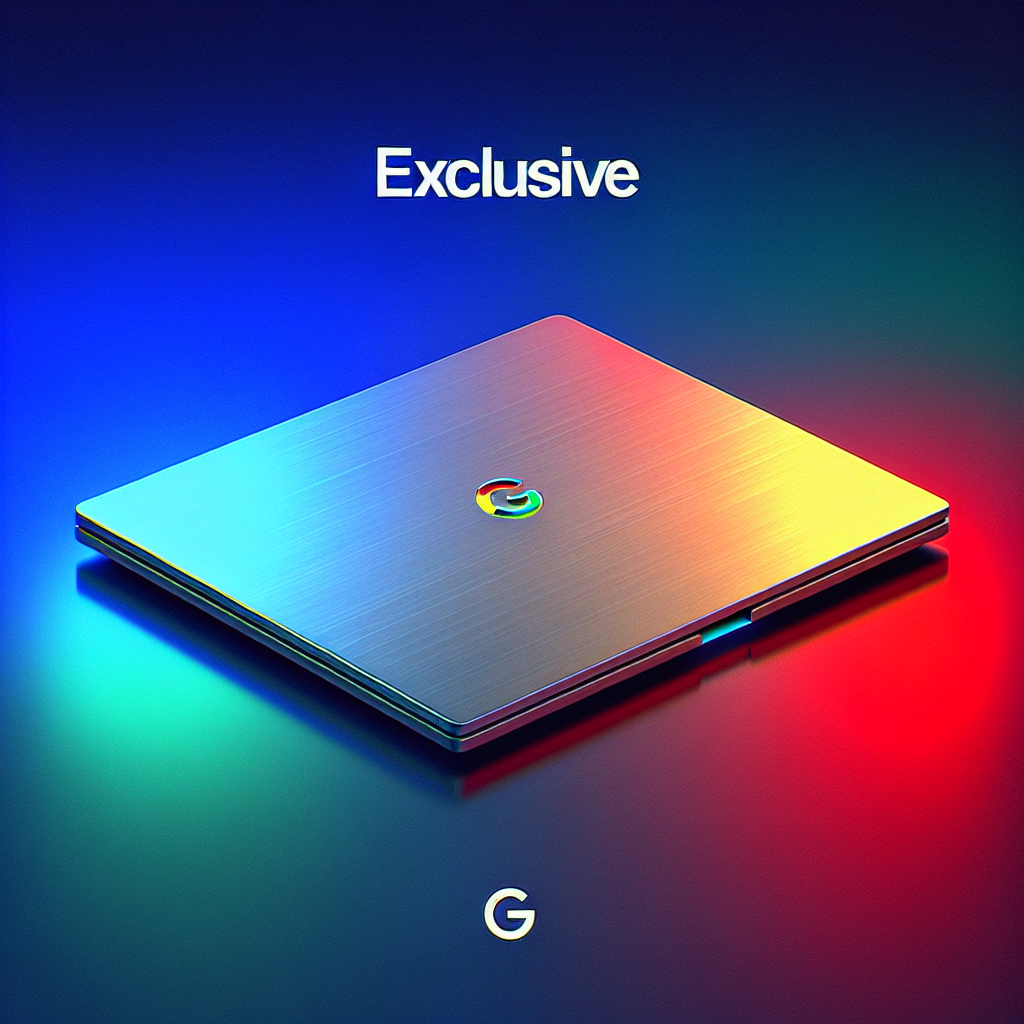
Exclusive: Everything We Know About Google’s Upcoming Pixel Laptop
Google’s Pixel hardware line has long been associated with premium devices that offer advanced features and seamless integration with its ecosystem. After the discontinuation of its Pixelbook series, rumors have emerged suggesting that Google is working on a brand-new Pixel Laptop. This exciting development indicates that Google is ready to take on the premium laptop market with a device that integrates the company’s signature innovation, design, and software.
As of November 2024, the Google Pixel Laptop is still in development, but early details are emerging. Here’s everything we know so far about this device, from design and performance to its operating system and integration with Google’s broader ecosystem.
1. Google’s Shift from Pixelbook to Pixel Laptop
Google’s journey into the laptop market began with the Chromebook Pixel in 2013, a premium Chromebook that showcased the potential of Chrome OS on high-end hardware. The Pixelbook, released in 2017, built on this legacy by offering a more refined design and powerful hardware, but it still ran Chrome OS. The Pixelbook Go followed in 2019, providing a more affordable option while still maintaining premium features.
However, despite its innovative design and strong performance, the Pixelbook never achieved widespread success, especially in comparison to cheaper Chromebooks, which dominate the education market. Google has reportedly decided to move away from Chromebooks and instead focus on developing a high-end laptop that runs Android or a hybrid OS.
The decision to shift away from Chrome OS represents a bold step forward for Google, as it aims to compete more directly with established players in the laptop market, such as Apple and Microsoft. This move also signals that Google is ready to expand its hardware offerings beyond smartphones, smart speakers, and wearables.
2. What to Expect from the Pixel Laptop Design
The design of the Pixel Laptop is one of the most exciting aspects of this new device. Based on leaks and rumors, the Pixel Laptop is expected to have a sleek, ultra-thin form factor, with a high-resolution OLED display offering vibrant colors and sharp visuals. The device is anticipated to feature minimal bezels, following the trend set by many premium laptops on the market today.
The overall build quality of the Pixel Laptop is expected to be premium, with metal or high-grade materials used for the chassis. It will likely carry forward the design elements that made the Pixelbook and Pixelbook Go stand out, such as the clean lines and modern aesthetic. Users can expect a device that is not only functional but also stylish, offering a luxury feel akin to Apple’s MacBook lineup.
While details about the size of the laptop remain scarce, it is speculated that the Pixel Laptop will feature a 13-14 inch screen, striking a balance between portability and productivity. The convertible form factor seen in previous Pixelbook models may also make a return, allowing the device to function as a tablet when necessary.
3. Operating System: Android on a Laptop?
One of the most intriguing aspects of the Google Pixel Laptop is the operating system it will run. While Google’s Pixelbook devices utilized Chrome OS, it’s widely speculated that the Pixel Laptop will run Android or potentially a hybrid operating system that combines Android with some desktop features.
The use of Android as the primary OS represents a significant departure from the traditional laptop experience. This choice could be advantageous in many ways, particularly in its ability to seamlessly integrate with the Google ecosystem. Android apps, which are already optimized for mobile devices, could be adapted for use on a larger screen, providing a unified experience for Pixel phone users.
The key challenge, however, will be optimizing Android for a laptop form factor. While Android is highly functional on smartphones and tablets, it’s not traditionally designed for a full laptop experience. Google will need to ensure that multitasking, window management, and input methods such as trackpads and keyboards work seamlessly.
Some experts believe Google may opt for a hybrid OS, possibly integrating elements of Chrome OS and Android to deliver the best of both worlds. Such a system would allow users to run Android apps alongside web-based applications, combining the power and flexibility of a traditional laptop with the convenience of mobile apps.
4. Performance and Specifications: A Premium Laptop for Power Users
The Pixel Laptop is expected to feature powerful internals capable of handling demanding tasks. While specific details about the processor and RAM configuration are still unclear, it is likely that the device will be powered by cutting-edge processors from either Intel or ARM-based designs. The ARM architecture, in particular, has gained popularity in recent years due to its power efficiency and performance benefits, as seen with Apple’s M-series chips.
The laptop is also expected to come with a minimum of 8GB of RAM, with higher configurations offering up to 16GB or even 32GB of RAM. Storage options are likely to start at 256GB, with higher capacities available for users who require more space for applications, files, and media.
Additionally, the Pixel Laptop will likely offer excellent battery life, with Google leveraging its expertise in software optimization to ensure that the device lasts throughout the workday. It is expected to feature fast charging, with the possibility of wireless charging as a future option.
5. The Pixel Ecosystem: Integration with Google’s Devices
One of the main advantages of purchasing a Pixel device is the seamless integration with Google’s broader ecosystem. The Pixel Laptop will likely be no exception. Expect features like deep synchronization with Pixel smartphones, the ability to make and receive calls, and perhaps even the use of the Pixel’s AI features on the laptop.
Google’s virtual assistant, Google Assistant, will also play a key role, offering hands-free control over various functions, including setting reminders, sending messages, and managing tasks. Integration with other Google services, such as Google Photos, Google Drive, and Google Meet, will make it easier for users to stay connected and productive.
Furthermore, the Pixel Laptop may also interact smoothly with other Google hardware products, such as the Pixel Watch, Nest smart devices, and Chromecast. This connectivity across devices would offer a holistic, integrated experience that’s hard to match by other manufacturers in the market.
6. Pricing and Release Timeline: When Can We Expect It?
As with most new products, the release date and pricing for the Pixel Laptop remain speculative. However, based on Google’s typical product cycles and industry trends, the device is expected to be released in late 2024 or early 2025. Google may unveil the laptop during one of its major hardware events, similar to how it introduced the Pixel 8 series.
Pricing is expected to start at a premium level, likely around $1,000, positioning the Pixel Laptop as a direct competitor to high-end laptops such as Apple’s MacBook Air and Pro models. Google’s focus on delivering a premium experience, along with its innovative hardware and software features, justifies this pricing strategy. However, depending on the configuration, the laptop could cost upwards of $1,500 for higher-end models.
7. What Does This Mean for the Laptop Market?
The entry of Google into the premium laptop market is a significant development. The Pixel Laptop will likely force other manufacturers to up their game, especially when it comes to design, performance, and integration with mobile ecosystems. Google’s strong brand recognition and existing user base will likely attract a lot of attention, especially among those already invested in the Pixel ecosystem.
While it’s too early to predict the exact impact, the Pixel Laptop could shift the dynamics of the laptop market, bringing new innovation and competition to a space that has largely been dominated by Apple, Microsoft, and a handful of other manufacturers.
The development of the Google Pixel Laptop marks an exciting new chapter for the company in its quest to build a more integrated, high-performance ecosystem. By combining Google’s powerful software with top-tier hardware, the Pixel Laptop promises to offer a unique and premium experience that could disrupt the traditional laptop market. While much remains to be seen, early indications suggest that Google is prepared to compete head-to-head with some of the biggest players in the industry.
As the device nears release, more details will emerge, but for now, the anticipation around the Pixel Laptop continues to grow.
Visit our other website: https://synergypublish.com

